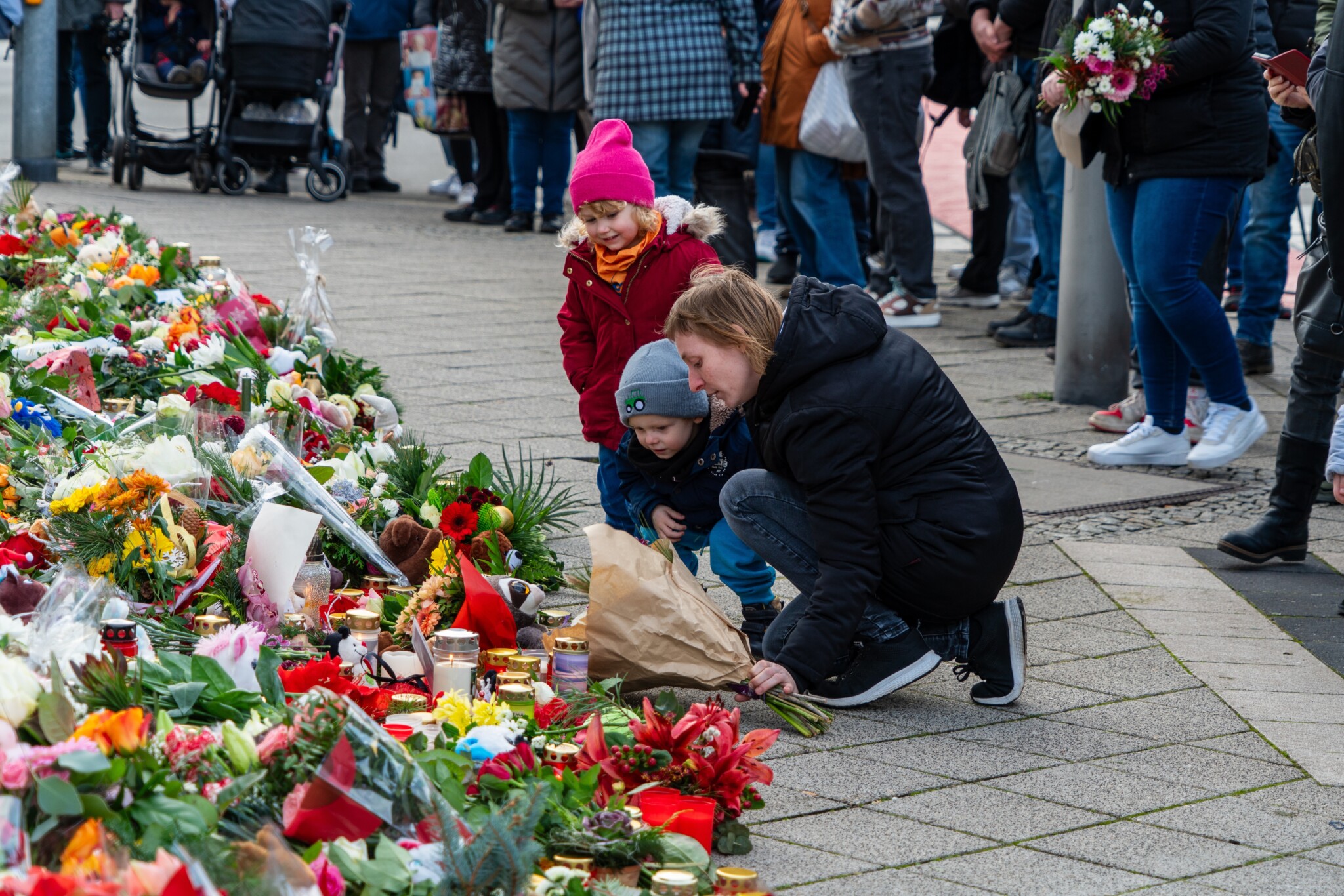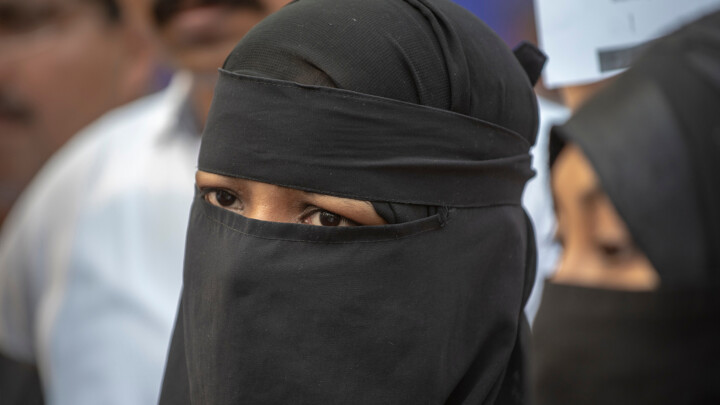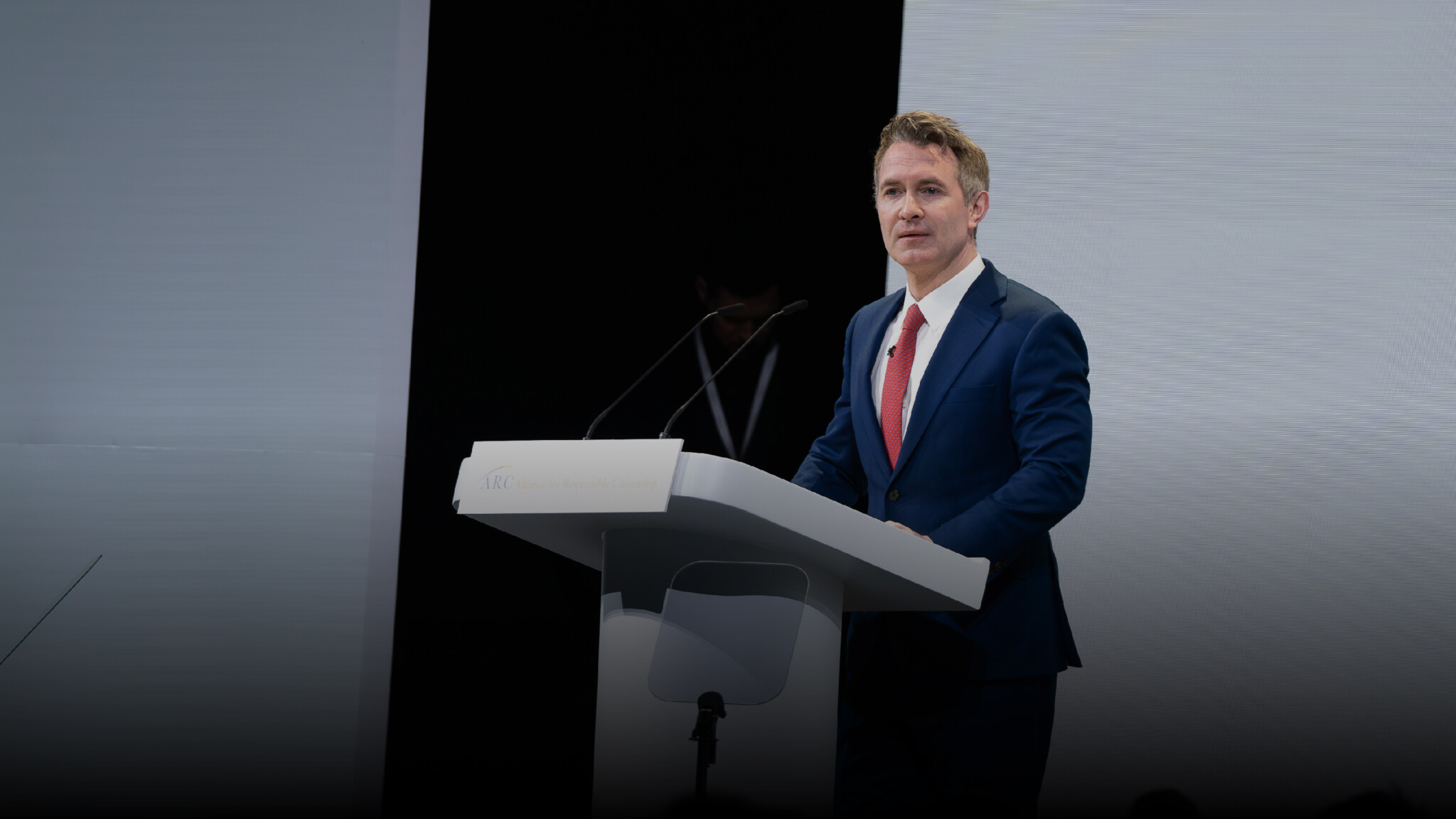About three and a half million Muslims live in the United States, making up slightly more than 1% of the population. Most are peaceful, law-abiding citizens. Many first-generation Muslim immigrants embody the American Dream, with 46% of those over 25 holding college degrees (compared to 38% of the general population) and 8% owning businesses.
At first glance, American Muslims seem to be assimilating well. Successive waves of immigrants to America have been integrated over the years. Why should Muslim immigrants be any different?
Enjoy independent, ad-free journalism - delivered to your inbox each week
America has long been a melting pot, but as Europe is learning in the wake of large-scale Muslim immigration, some parts of the melting pot will not melt unless there’s a degree of cultural compatibility.
As the number of Muslims living in Britain and Europe has grown rapidly, Muslim communities have not just failed to integrate, they have grown determinedly separate. Instead of cultural convergence, Europe shows us what Muslim cultural divergence looks like. America may be only a few decades behind from something similar.
Europe’s Unhappy Experience

Pictured: A young family lays flowers in remembrance of those tragically lost in the Christmas market attack in Germany, December 2024.
The number of Muslims in Britain has doubled in 20 years, up from 3 percent of the population in 2001 to more than 6 percent today. Projections suggest Muslims could make up 13-17% of the population by 2050.
Forty three percent of British Muslims want “the introduction of Sharia law,” while only 22% opposed it, according to a 2016 survey by Policy Exchange. Support for Sharia was even stronger among Muslims in London (49%), where Muslims now make up 15 percent of the population.
If America had the same proportion of Muslims that Britain now has, with a similar percentage in favor of Sharia law, there would be 9 million Muslims in America wanting Sharia, a number larger than the population of most US states.
A Henry Jackson Society Poll in 2024 found that 32 percent of British Muslims would like to see Sharia law within the next 20 years.

If fully imposed, Sharia law could bring brutal punishments like stoning or amputation, strip women of equal rights, and enforce male dominance in courts, marriage, and everyday life.
Only one in four British Muslims accept that Hamas committed atrocities in Israel on Oct 7th 2023. Slightly more than half want the introduction of blasphemy laws.
In the aftermath of riots in Bradford in 2001, an official report into the disturbance talked about how British Muslims live “parallel lives”, separate from the rest of the country. Rather than integrating, Muslim Britain grows further apart, with, according to Policy Exchange, 40 percent of British Muslims favored gender-segregated classrooms and 44 percent supported mandatory Islamic dress for girls in school.
Muslims have been responsible for 94% of all deaths from terrorism since 1999; and the overwhelming amount of caseload by Britain’s counter terrorism agency, M15.
Indeed, MI5 tracks almost 40,000 Islamist extremists – roughly one in every hundred British Muslims. While that might mean 99 in a 100 are not considered a threat, reflect on this fact: more British Muslims volunteered to fight for ISIS than currently serve in the British army. It’s not the presence of several hundred British Muslims in Syria that is so striking, but the absence of thousands of Muslims in recruiting offices across their country.
More British Muslims volunteered to fight for ISIS than currently serve in the British army. It’s not the presence of several hundred British Muslims in Syria that is so striking, but the absence of thousands of Muslims in recruiting offices across their country.
This could be explained by the fact that even though around half of British Muslims have been born in Britain, 71 percent of British Muslim adults now identify as Muslim “first and foremost”, while 27% saw themselves first as British, English, or Scottish.
British Muslims have a far higher propensity towards criminality. Despite being slightly over 6 percent of the population, they make up almost a fifth of the prison population.
In France, which hosts the largest Muslim population in Europe, there are an estimated 9 million Muslims (13% of the population), up from 7–10% in 2005. Projections suggest Muslims could reach 18% (13.2 million) by 2050. In Sweden almost a tenth of the population are now Muslim, and this could rise to 31 percent by 2050. In Germany, the Muslim share of the population has risen from 4 percent in 2010 to around 8 percent today, and could reach almost 20 percent of the population by 2050.
Despite the fact the 60 percent of Muslims in France were born in France, a 2016 Ifop poll found 28% prioritized religious over national identity, and 74% of Muslims under 25 wanted secular laws to accommodate religious practices, challenging France’s laïcité framework. One poll found that 29 percent support practices like polygamy or strict segregation between men and women.
Across much of Europe, Muslims tend to concentrate in urban areas. The number of mosques in Britain has now grown significantly, with over 3,000 in the UK, alongside 130 sharia courts and 50 sharia councils. Muslim immigration has introduced visible practices like halal food, veiling, Islamic festivals, and gender segregation.
In every single European country, Muslims have significantly higher unemployment rates and are far more likely to live on welfare or in social housing. A 2018 Danish study (Ministry of Finance) found that immigrants from certain non-Western countries, including Middle Eastern and North African nations, had a net negative fiscal impact over their lifetimes, costing more in welfare than contributing in taxes.
A net fiscal burden, Muslims in Europe have also been disproportionately responsible for multiple terror attacks, such as the 2005 London bombings, the 2017 Manchester Arena atrocity, the 2015 Paris attacks, the 2020 Nice stabbing, gang violence and bombings in Sweden, the 2016 Cologne New Year’s Eve assaults, and multiple Christmas market attacks.
In Britain, the Community Security Trust, which tracks antisemitic incidents, has recorded a substantial rise in attacks on British Jews. There were a record 4,103 incidents in 2023, a tenfold increase in almost twenty years.
As Douglas Murray has noted, the “main driver of antisemitism” comes from Muslims. Indeed, as Mehdi Hasan acknowledged in a 2021 newspaper column, anti-Semitism among British Muslims is “routine and commonplace”, what he called their “dirty little secret”.

Douglas Murray notes that Muslim antisemitism is a major concern—what Mehdi Hasan once called British Islam’s “dirty little secret.”
In France the Conseil Représentatif des Institutions Juives de France reported 1,676 antisemitic incidents in 2023, almost four times the amount recorded the previous year. About 60 percent involved actual violence or the threat of violence. The number of incidents surged in the wake of the Hamas attacks on Israel in October 2023 and the perpetrators were overwhelmingly Muslims. In 2017, 40 percent of racially motivated violence in France targeted Jews, despite Jews comprising less than 1 percent of the population. Again, the overwhelming majority of those that perpetrated the attacks were Muslim.
“But America is different” some will insist “That won’t happen here! We’re a nation of immigrants with a history of absorbing everyone.”
Really? America has successfully integrated all sorts of people, but not yet large numbers of those with a profoundly different metaphysical belief system at odds with much that is distinctly Western.
If America, like Europe, allows large scale Muslim migration, and shares with Europe the same assumption that integration will automatically follow, why does anyone expect different results?
Unless something changes, it is only a matter of time before America starts to experience what Europe, several decades further down the road, is starting to go through.
Universalism and the Failure of Elite Orthodoxy

Four decades ago, when Britain’s Muslim population was proportionately similar in size to America’s current Muslim proportion, Ray Honeyford, headteacher of Drummond School in Bradford, raised the alarm. He warned that Britain’s Muslim communities were not integrating, leading to the creation of what he referred to as “Asian ghettoes.” Honeyford argued for prioritizing British values over the celebration of cultural diversity, which he saw as deepening societal divides. Rather than being heeded, Honeyford was vilified and pushed into early retirement.
Elite ideology, even then, leaned heavily toward universalism—the belief that human nature is fundamentally uniform across all cultures, making individuals essentially interchangeable.
It is a dogma of our ruling elite that people from any background possess identical capacities for reason, restraint, and moral conduct. To suggest otherwise, as Honeyford did, was a form of secular sacrilege. Yet Honeyford, whose old school has since been renamed Iqra School (an Arabic term meaning “read” or “recite,” often associated with the Quran) proved to be strikingly prescient.
It is a dogma of our ruling elite that people from any background possess identical capacities for reason, restraint, and moral conduct. To suggest otherwise, as Honeyford did, was a form of secular sacrilege. Yet Honeyford, whose old school has since been renamed Iqra School (an Arabic term meaning “read” or “recite,” often associated with the Quran) proved to be strikingly prescient.
It is the universalist ideology of America’s elite that explains why the United States literally selects at random individuals from places like Mogadishu and settles them in Michigan, all the time expecting they will be like every other Midwesterner. That’s not the way it’s working out in Dearborn or Hamtramck.
America’s first Muslim-majority city, Hamtramck, has had a Muslim-majority municipal government since 2015. First came what one might call sectarian voting patterns, which have transformed the city council from Muslim-majority to Muslim monopoly. There are now no non-Muslims elected to it.
Then in June 2023, the all-Muslim city council unanimously banned Pride flags from city property—a move that stunned American progressives but would surprise very few in Europe.
Then there have been the allegations of voter fraud, particularly within the city’s Bangladeshi community. Similar allegations would be familiar to anyone that has observed municipal politics in London’s Tower Hamlets council.
Since 2004, Hamtramck city council has allowed the local Bengali mosque to broadcast the Islamic call to prayer. In May 2024, mere months after Hamas’s October 2023 attack on Israel, the council unanimously passed Resolution 2024-51, endorsing the Palestinian cause.
None of this would be a surprise to anyone that has observed what has happened in Britain. Why should anyone assume things will turn out differently in America either?
In the wake of Hamas’ terror attacks on Israel, many Americans were shocked to see students at elite Ivy League universities protesting is support of Hamas. Anti-Israel protests often started before Israel had had time to bury her dead.
While comprehensive data on the protesters’ backgrounds is lacking, Muslim students and organizations were prominent in leading these demonstrations, particularly at universities like Rutgers, where Muslims form a significant portion of the student body. A May 2024 YouGov poll found that 75% of American Muslims supported these protests, compared to just 28% of the general population.
In Texas, meanwhile, the East Plano Islamic Center (EPIC), EPIC City is a planned on a 400-acre development, as a Muslim enclave, with over 1,000 homes, a mosque, and an Islamic school. Described by some as a “Sharia City”, the EPIC project does not suggest assimilation or cultural convergence, but what some might see as “Hijrah” (migration to advance Islam).
Discovered by an FBI raid in 2004, the 1991 “Explanatory Memorandum”, attributed to the Muslim Brotherhood, outlines a strategy for a “civilizational jihad” to promote Islam in North America. It talks about a long term “Civilization-Jihadist Process”, establishing an Islamic Movement and “eliminating and destroying Western civilization from within” by infiltrating and “sabotaging” societal structures, making Islam dominant.
Discovered by an FBI raid in 2004, the 1991 “Explanatory Memorandum”, attributed to the Muslim Brotherhood, outlines a strategy for a “civilizational jihad” to promote Islam in North America. It talks about a long term “Civilization-Jihadist Process”, establishing an Islamic Movement and “eliminating and destroying Western civilization from within” by infiltrating and “sabotaging” societal structures, making Islam dominant.
Whether Islamification is intentional, or occurs organically as a consequence of large scale immigration, it will occur unless America decisively rejects universalism, and wakes up to the fact that there is nothing inevitable about Muslim Americans blending into the melting pot.
A generation ago, Britain ignored what Ray Honeyford had to say. The universalist orthodoxy continued to subscribe to the fantasy that there would be Muslim cultural convergence. Had Britain acted on Honeyford’s advice, her Muslim population might be smaller and more integrated, with a smaller reservoir of radicalism.
America needs to act now to avoid making a similar mistake. A good place to start is by recognizing that Western culture distinctive.
Western exceptionalism
Western societies are WEIRD. That is to say they are Western, Educated, Industrialized, Rich, and Democratic (WEIRD), as described by psychologists Joseph Henrich, Steven Heine, and Ara Norenzayan in their seminal work The WEIRDest People in the World: How the West Became Psychologically Peculiar and Particularly Prosperous.
Western people are a psychological and cultural outlier, exhibiting traits and behaviors that diverge significantly from those found in most other cultures, particularly those traits in Muslim societies.
WEIRD individuals tend to prioritize individualism over collectivism, analytical reasoning over holistic thinking, and impersonal trust over clan-based loyalty. These traits manifest in a cultural emphasis on personal achievement, abstract moral principles, and openness to strangers—attributes that are not universal norms. For example, while many non-WEIRD societies, such as those in the Muslim world, emphasize familial and communal obligations, WEIRD cultures often celebrate individual choice and self-expression. This psychological orientation fosters innovation and economic prosperity but also sets WEIRD populations apart in their approach to social relationships and decision-making.
Henrich and his colleagues research highlights how WEIRD individuals score higher on measures of individualism, moral universalism, and trust in strangers, while non-WEIRD populations often prioritize group cohesion and context-dependent reasoning. WEIRD Westerners are more likely to cooperate with strangers and punish unfair behavior, even at personal cost, compared to participants from other cultures.
Henrich proposes that WEIRDness owes a lot to the teachings of the medieval Catholic Church, which prohibited cousin marriage. By discouraging consanguineous marriages, the Church, starting in the early Middle Ages, weakened clan-based social structures in Europe. This shift, Henrich argues, fostered greater individualism and impersonal trust, as people were forced to interact beyond tight-knit family networks. Over time, these changes contributed to the development of institutions, markets, and legal systems that rewarded cooperation with strangers and abstract rule-following—hallmarks of WEIRD societies.
Perhaps. Or maybe, as the historian and anthropologist, Emmanuel Todd, has suggested, some of the distinctive family structures in northwestern European predate the Medieval teachings of the Catholic church.
Maybe Western WEIRDness owes something, too, to the distinctive way that the Western mind sees the world, thanks to an intellectual inheritance from three cities of antiquity; Athens, Jerusalem, and Rome.
From Athens, the West inherited Greek philosophy, which introduced the idea that reason can unlock the mysteries of the world and that natural laws govern its workings, accessible through rational inquiry.
From Jerusalem came the Jewish concept of a singular God and the profound idea that each person is created b’tzelem Elohim—in the image of God. In Judeo-Christian thought, this imbues every individual with inherent worth, forming the foundation of individualism. It also suggests that each person possesses free will, with the capacity to align with or diverge from the divine will.
From Rome, the West received its framework of law, interwoven with echoes of Greek philosophical ideals.
This inheritance from antiquity reconciles reason and religion. Far from being at odds, the two can coexist: understanding the natural laws that govern the universe does not negate the divine but complements it. The existence of such laws aligns with the concept of a purposeful intelligent design. Revelation is not opposed to reason but achieved through it.
Muslim societies have an entirely different way of looking at the world.
Douglas Carswell is the President & CEO of the Mississippi Center for Public Policy. A proud immigrant who has integrated to life in America, he was previously a British Member of Parliament and co-founder of the official Brexit campaign.

An Israeli soldier paying tribute to those tragically murdered during the NOVA festival, October 2023.




Comments (0)
Only supporting or founding members can comment on our articles.